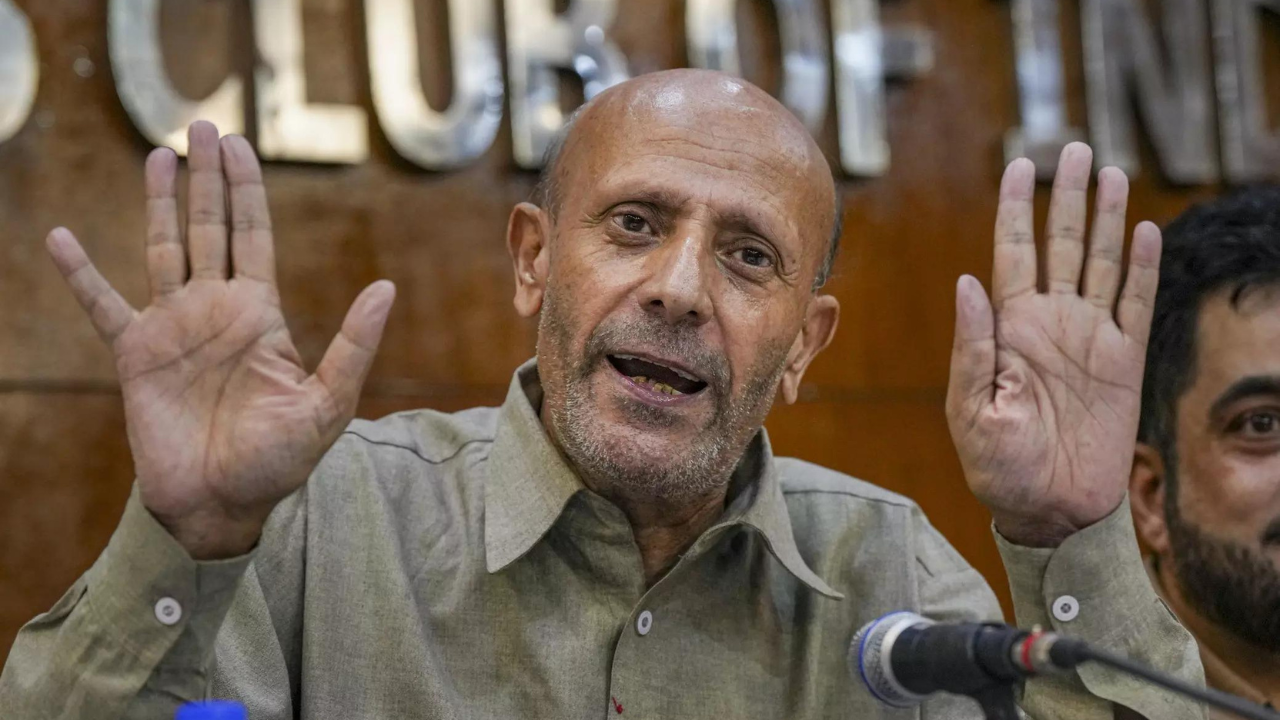Jammu and Kashmir MP Rashid Engineer's Bail Plea: A Political Tug-of-War
The Delhi High Court's recent involvement in the bail plea of Jammu and Kashmir MP Rashid Engineer has ignited a firestorm of debate and controversy. Engineer, a prominent figure known for his outspoken advocacy, has been languishing in jail since 2019, facing charges related to terror funding. This case isn't just about legal proceedings; it's a stark reflection of the complex political landscape of Jammu and Kashmir, raising crucial questions about justice, freedom of speech, and the very fabric of democracy.
The Case Against Engineer Rashid: Terror Funding Allegations
The National Investigation Agency (NIA) arrested Engineer in 2019, accusing him of involvement in a 2017 terror-funding case. The charges are weighty, involving accusations of conspiracy to wage war against the government and incite unrest in the Kashmir Valley. The case also implicates high-profile figures like Hafiz Saeed and Syed Salahuddin, adding another layer of complexity and international intrigue to the situation.
The NIA's Charges and the Ongoing Investigation
The NIA's investigation is comprehensive and far-reaching. They allege that Engineer, along with others, engaged in a concerted effort to channel funds to terror organizations. The detailed charges underscore a sophisticated network with connections to known terrorist entities. These allegations, though serious, are still subject to the due process of law.
Engineer Rashid's Defense and Political Ramifications
Engineer's supporters vehemently contest these accusations, portraying him as a vocal advocate for the marginalized and a champion of democratic ideals in Jammu and Kashmir. They believe that his arrest is politically motivated, a suppression of dissenting voices in a region already fraught with tension and conflict. The case thus serves as a flashpoint, underscoring wider political narratives concerning autonomy and human rights in the region.
The Legal Battle: Delays and Appeals
Engineer's bail plea has encountered significant delays in lower courts, a factor fueling frustrations among his supporters. The sheer length of time spent incarcerated has amplified concerns about the fairness of the legal process. This long delay highlights deep-seated problems within the judicial system, raising worries of inefficient bureaucracy and political influence affecting legal decisions.
The High Court Intervention and Seeking Justice
The recent intervention of the Delhi High Court adds a critical dimension to the case. The High Court's directive to the NIA underscores its concern and serves as a push toward timely resolution. The expectation is that this intervention will not only speed up the process but will also apply further scrutiny and transparency to the proceedings, enhancing faith in the judiciary's role as a check on executive power.
Potential Outcomes and Implications for Jammu and Kashmir
The outcome of this case holds enormous ramifications for Jammu and Kashmir. Regardless of the final decision, the high-profile nature of Engineer's case makes it likely to inspire significant public discussion. This will invariably influence political perceptions in a delicate political arena and potentially reignite the debate about human rights and freedoms in the region.
Implications of this Case for Freedom of Speech and Political Activism
Engineer Rashid's prolonged incarceration sparks a broader conversation about freedom of speech, particularly in sensitive regions grappling with political turmoil. His status as an elected representative further heightens these concerns.
Freedom of Expression Under Scrutiny
The case serves as a focal point for examining restrictions on political expression and how far a government can legitimately go to restrict political commentary. It's a delicate balance that constantly calls for legal reassessment and public awareness.
The Role of Political Activism in Conflict Zones
In Kashmir, where political activism is often layered with security considerations, defining the limits of legitimate political expression becomes a central aspect of preserving rights and freedoms in conflict settings. This is a question demanding careful discussion and debate given the complexities and high stakes involved.
The Road Ahead: Justice Delayed?
The legal journey is far from over. This complex case, with its high-stakes political dimensions and potential for international repercussions, will undoubtedly continue to attract widespread interest. The timely conclusion and transparent conduct of the legal process will significantly contribute to upholding the rule of law and maintaining peace and social harmony in a region with a delicate political equilibrium.
Take Away Points:
- Engineer Rashid's case highlights the complex interplay of law, politics, and security in Jammu and Kashmir.
- The long-running legal battle underscores concerns about delays and the fairness of the justice system.
- This case opens crucial debates on freedom of expression, especially in contested political environments.
- The eventual outcome will likely have considerable implications for the political climate and societal discourse within Jammu and Kashmir.









